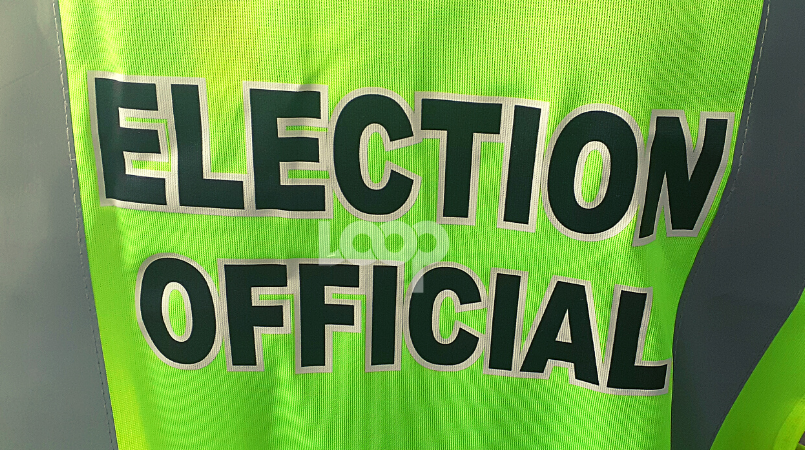
The Electoral Commission has made thirteen recommendations to the Constitutional and Law Reform Commission (CLRC) to have existing electoral laws changed to strengthen advances in governance of election in PNG.
In February 2018, the Governor General, upon directions from the National Executive Council (NEC), commissioned CLRC to undertake a review of PNG’s electoral system within a period of 18 months; which has already be completed.
CLRC’s final report and recommendations were presented to the Prime Minister, Attorney General and key stakeholders in late January this year.
Terms of Reference that guided CLRC to undertake the review (inquiry) of PNG’s electoral system included:
- Electoral Roll System
- Polling system (polling period, polling places)
- Electoral boundaries
- Seats for women (and special interest groups)
- Nomination (fees, eligibility or qualification)
- Court of disputed returns (election petitions – period, filing fees, security costs)
- Voter identification (biometrics system of registration & voting)
- LLG elections
- Electoral Commission (composition, powers, duties & responsibilities)
- Decentralisation of electoral responsibilities
Here are some of the recommendations:
- In the administration of elections, Electoral Commission would remain as the key Constitutional Office to conduct all elections for National and Local-Level governments.
- The Electoral Commission will consist of three (3) Commissioners headed by the Chief Electoral Commissioner, with a qualified woman to be appointed as one of the three Commissioners.
- For registration of voters, registration nationwide would close ninety (90) days before the date of issue of writs by Governor General.
- On voting day, where it is found that a person’s name is missing on the electoral roll, he or she can produce his or her NID card or other valid forms of identification such as driver’s licence, passport and work or school ID to enroll ‘on the spot’ and be allowed to vote as ‘declaration voter’ same time.
- In terms of biometric systems of voter registration and voting, CLRC inquiry found that biometrics is not feasible in 2022 national election and recommended that it be adopted for future elections.
- Nomination fees would be increased to K5000 for National Parliament elections from current K1000 while nomination fee for LLG elections would increase to K500 from the current K200.
- Campaign period would be reduced to four (4) weeks from the current eight (8) weeks while a ‘campaign blackout’ would be imposed three (3) days prior to the start of polling to stop all campaign activities by candidates.
- For polling, there would be one day voting nationwide within seven (7) from the current fourteen (14) days of polling period.
- Sunday voting is allowed in the proposed laws. A proposal is put for voting to be conducted on days of worship (Saturday and Sunday) as well as public holidays to avoid any confusion and religious and faith restrictions.
- Primary counting of votes would be done in the same polling place immediately after the day’s voting under the watchful eyes of the crowd present plus political party officials, candidate scrutineers.
- Tallies of primary votes counted at the polling place would then be transmitted by the Returning Officer on WhatsApp or other secure information communication technology to a central tally centre to conduct eliminations if no candidate scored absolutely majority. This is to reduce and prevent the prevalence of violence and promote discipline in the management of public finance during polling and counting periods.
- Before declaring the winning candidate, the Returning Officer (RO) would have to receive and verify vote tallies from each designated polling place managed by duly appointed Presiding Officers.
- Declaration is to be made by the RO in a safe and secure facility at the district headquarters or other designated safe and secure facility appointed by the RO after consulting with the Provincial Police Commander and Chief Electoral Commissioner.
- For election petitions, the petitioner is to file thirty (30) days from issue of writs or start of polling – current law allows candidates to file petitions forty (40) days after declaration of the seat.
- Filing fees for election petitions would be increased to K1000 for National Parliament and K500 for LLG from current K500 and K200 respectively while court security deposit fees to increase to K10,000 for National Parliament and K1000 for LLG from current K5000 and K500.
- Meanwhile, LLG term of office would run full five (5) years once Section 34 of the Organic Law on Provincial and Local-Level Governments is amended. This would mean that effective from 2021, LLG elections would be conducted two years and six months after return of writs for National Parliament elections. Unless the proposed Organic Law on Decentralization repeals the LLGs and the election law would have to be adjusted to align with proposed types of governments such as Provincial Governments, Gradative Governments and Integrated Governments, which must be established through a proper and legally established election process.
